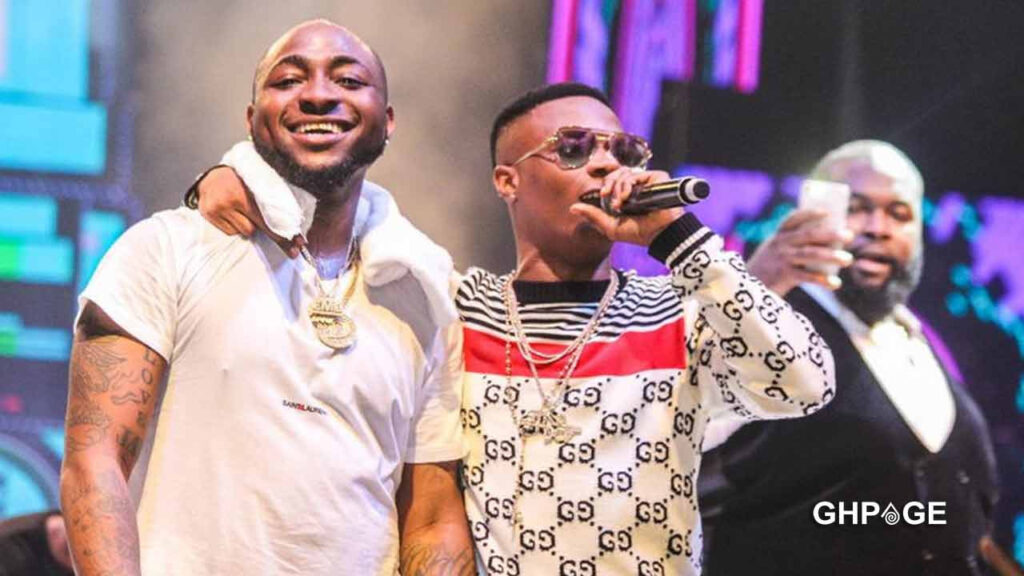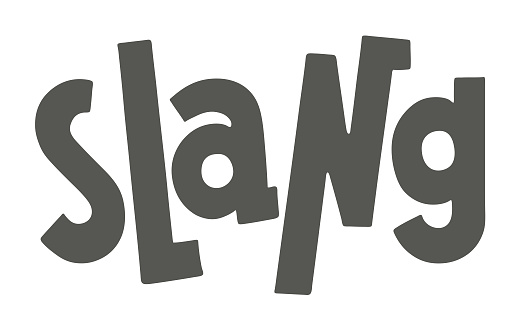“Who dey Breeet?” Let me assure you, no average Nigerian needs any help translating that remark. But if the lingo puzzles you, fret not. In this article, we will discuss popular Nigerian slangs.
What Is A Slang?
According to the literature review, slang is any informal dialect that deviates from the standard manner of speech. Other substitutes for the word slang are jargon and vernacular.
Slangs are casual in nature, easy to adopt, and a fun addition to your lexicon. We have a plethora of Nigerian slangs because the subsidiary language, Pidgin, is vernacular. Therefore, we confirm that these slangs emerged from Pidgin, what society once called “the lingo of illiterates”.
However, that is not the case today.
With no amount of care for obsolete opinions, a large percentage of Nigerians regularly use bits and pieces of vernacular language in daily conversations. In Lagos State, particularly, Pidgin (and by extension, slangs) are commonplace and applicable in any environment. Rural, urban, schools, churches, companies … You name it.
Foreigners usually have trouble grasping or understanding some of these slangs, but that’s where we come in. By the time you reach the end of this post, you will be able to recite at least five different slangs off the top of your head.
SEE: What Is The Meaning Of Zazu?
Factors Behind Usage Of Slang In Nigeria
Certain factors influenced the development of slang over time. What are these factors?
Slang and Sense of Unity
Research claims there’s no better way to imbibe a new culture than learning the country’s native lingo. We agree. When visiting countries with multiple native dialects, try learning as much common slangs as possible. This promotes mutual understanding and easy interactions between you and the locals in that region.
Imagine you’re new in town, and I spot you in a crowd, this white rose in a field of tulips. Wishing to interact, but more streetwise than well-mannered, I approach you confidently and say, “Wetin dey sup?” instead of the standard “Good day” or “Hello.”
Now, anyone acquainted with Nigerian slangs will answer, “I dey” or at the very least, say, “I’m good. How do you do?”
But you, ignorant as a Marginata (with zero knowledge of local slangs), will surely eye me like I just fled Yaba-Left. And (after taking my L with grace), I will hit the road, since we clearly can’t relate.
More often than not, being inept at speaking slang makes you stick out like a sore thumb.
READ: What Is Sapa, And Is It A Good thing?
Expression Of Emotion
Another reason behind the resilience of Nigerian slangs is how they express what you feel better than most words in the English Dictionary. And just like words, certain slangs have more than a single translation.
One such case is the slang “Ehen”.
Generally, it means “Yes” or “Okay”. But when you hear variant pronunciations, instinctively, you’ll know each one means something entirely different. Let me give you examples:
- I said it!/I knew it!/I was right all along!/That’s it! – Ehen
- You see? – Ehen
- Are you serious? – Ehen
- And so? – Ehen
- I refuse/I disagree/No – Ehen
- So what was I saying? – Ehen
- That reminds me – Ehen
One word. Multiple variations and meanings. The beauty of slang.

SEE: The Japa Syndrome And its Effects
Language Diversity
Growing up, elementary schools had a major hand in the mass brainwashing of tomorrow’s leaders. Even today, few books declare Nigeria home to three languages alone: Igbo, Hausa, and Yoruba.
Hogwash! Total and absolute balderdash! Those 3 languages combined are still insignificant compared to the mountain of existing dialects. Nigeria has over 500 languages. Definitely not 3, or 15, not even 50.
A brief cruise through Nigeria’s history (see link below) will explain why the concept of only three languages is preposterous. Back in 1914, Lugard the Conqueror did not unite three tribes; he united hundreds, forcing them to co-exist as one colony.
Lugard also made English their official language, but the diversity of dialects yielded the birth of Pidgin as a common tongue. Pidgin helped various tribes communicate effectively. Gradually, the usage of slangs became prevalent among Nigerians and still endures to date.
READ ALSO: Nigeria’s Story: From Colonialism To Independence
Popular Nigerian Slangs You Must Know
At this point, unless you’re not paying attention, you should be able to define slang. You should be able to give an account of its origin and explain the factors that ensured its permanence.
Next, we shall examine a list of popular Nigerian slangs with their respective meanings as well as context.
NB: We have at least fifty popular Nigerian slangs in use today. Thousands have been created over the years; some have endured, some have died along the way, and others are even being born as we speak. However, in this post, we will only review the most commonly-used slangs.
“Fashi Am”
Translation(s) include: “Overlook it” “Let it go” “They’re not worth it”
Context: It’s a hot day, and you stand sweating like a tied-up doe (that’s a female goat, so stop looking confused) before Ramadan. How long before the bus comes? While you wait, a passerby steps on your clean suedes.
It gets worse because they seem unbothered. Your already-strained temper flares, a bonfire to match the sun. Sizzling. Deadly. Violence gives you her blessing.

Balled fists prepare to strike, but someone stops you.
“Fashi am, bro. I see say e no know wetin e do you. Na small mistake. Abeg fashi am.” “Let it go, bro. I’m sure he’s not aware of what happened. It’s a simple mistake. Please overlook it.”
“Yab”
Translation(s) include: “Dissing” “Insult” “Abuse”
Context: “Shey na you dem dey yab?” “Are you the one they’re insulting?”
SEE: Things You Don’t Know About Afro Singer Tiwa
“Wahala”
Translation(s) include: “Problem” “Trouble”
Context: “You just carry wahala put for my head.” “You’ve caused a problem for me.”
“Soro Soke!”
Translation(s) include: “Speak Up!”
Context: “Ogbeni, soro soke!” “Young man/woman, speak up.”
“No Dulling”
Translation(s) include: “Stop wasting time” “Don’t prolong things”
Context: “Alaye, settle us na. No dulling.” “Bro, attend to us. Stop wasting our time.”
“You Fall My Hand”
Translation(s): “You disappoint me”
Context: “Jimmy, so you carry dat babe go cinema true true? Chai, you fall my hand.” “Jimmy, so you actually took that girl out? Damn, you disappoint me.”
“Gbas Gbos”
No precise translation(s). Generally, “Gbas Gbos” entails an active dispute between warring individuals. “Gbas Gbos” describes a hostile (yet somehow entertaining) face-off where the rivals consistently trade insults before an engaged audience.
Fun Fact: Every Nigerian experiences a “Gbas Gbos” moment at least once in their entire lives. Gbas signifies first blood (first to throw shades), and Gbos signifies any retaliation or comeback.
You wouldn’t believe how Nigerians derived this slang. They took precious time to analyze a brawl between fighters (I kid you not), gauging each blow. Their theory? Exchanging fists produces particular sounds: “Gbas Gbos”.
A fairly ridiculous concept, to be sure, but who cares about the origin? Here’s an example:

“We Move”
Translation(s) include: “Life goes on”
Context: “Na one game cut ticket, so. E dey pain me but we move.” “I lost my bets because of a game. It hurts but life goes on.”
“Mad O”
Translation(s) include: “Wow” “Amazing” “Incredible” “I can’t believe this”
Context: “Bro, you see this shoe wey I dey wear? Na 2k I buy am.” “See my shoes? I got them cheap”, to which the person replies, “Mad o!”
“Wahala Be Like Bicycle”
Just like Gbas Gbos, this slang has no precise translation. It is used to explain humorous situations, regularly mentioned by certain skit makers/vloggers on social media.
The general idea of this slang is that problems are easy to start but hard to stop.
“E Choke”/”E Restrict My Airflow”
Saved the best ones for last, that I did.
These two slangs are top-tier, respectively coined by two giants in the Nigerian music industry.

“E Choke” was first mentioned in a short video the Confirm crooner posted some time ago, and unsurprisingly, Nigerians hastily adopted the lingo.
As for “E Restrict My Airflow”, we have Starboy to thank. Despite being more-or-less a synonym of “E Choke”, “E Restrict My Airflow” sounds appealing. Granted, it doesn’t have that snappy finish like its twin, but adoring fans nationwide use the phrase as an alternative to Davido’s “E Choke”.
“E Choke” has no precise translation; we use the phrase in regard to unforeseen occurrences, and to gauge levels of shock and amazement.
Context: “You see the Ferarri wey Danny arrange? E choke o! E Restrict my airflow!” “Have you seen Danny’s new whip? I never expected it! Shocking!”
To Wrap Up:
Congratulations.
You learned some of the popular Nigerian slangs used use and how to apply them in a given context. Therefore, you are ignorant no more. So when next someone directs any slang at you, you will know the right way to respond.
Here endeth the lesson. Farewell.
“Twale! Omo ope!“

Let us know if you have any questions or comments in the section below.





